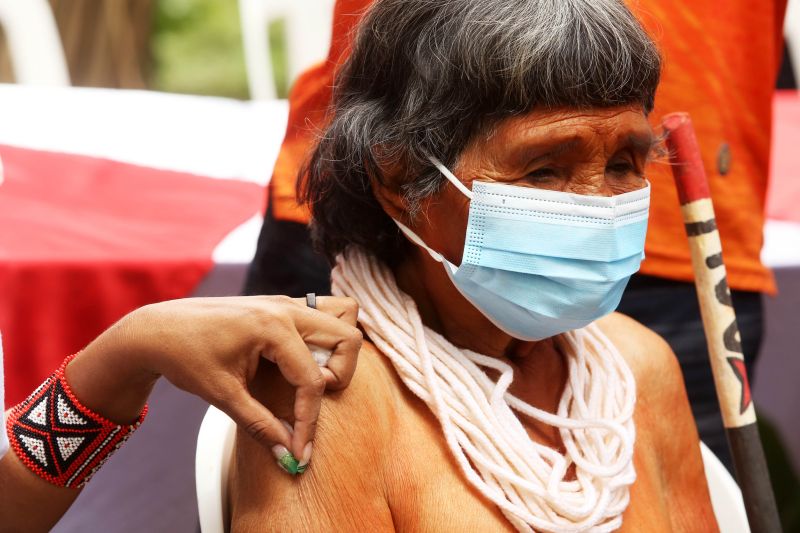RIO DE JANEIRO, BRAZIL – The plan is to vaccinate 100% of the indigenous people belonging to the Warao, Eñepá, and Pemon ethnic groups. The operation is a collaboration between Operation Welcome, the federal and state ministries of Roraima state, and the Ministry of Health in the capital.

The Public Defender’s Office (DPU) has been working to ensure that immigrant indigenous people receive the vaccine in other Brazilian cities to which they have moved.
It is believed that this population should benefit from the National Immunization Program (PNI) in the same way as Brazil’s indigenous population. Public Defender João Freitas de Castro Alves highlights the vulnerability of these groups and explains why they must be given priority.
Two cities – Mossoró RN and Rio Branco AC – are already following the advice of the Public Defender’s Office.
The Acre state government reported that it is complying with the PNI and vaccinating indigenous people living on authorized or unauthorized lands. According to the government, people in urban areas are scheduled according to the same criteria as the general population.
At the border, indigenous people and other migrants who were about to migrate were vaccinated, according to the government.
The Special Secretary for Indigenous Health at the Ministry of Health, Robson Santos, indicated that if an indigenous migrant is registered in the Brazilian systems, he or she can be vaccinated.
The goal is to vaccinate 90% of the indigenous population against Covid-19, and that number should be reached in 30 to 40 days, according to Santos. So far, 82% have already been vaccinated with the first dose and 73% with both doses.
In total, 603,000 vaccinations have already been given, between the first and second doses. Also, according to Robson Santos, populations of the Northeast, such as Pankararu and Truká, were the first to reach the goal of 90% vaccinated.

